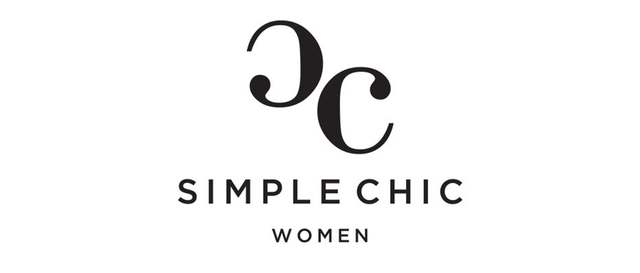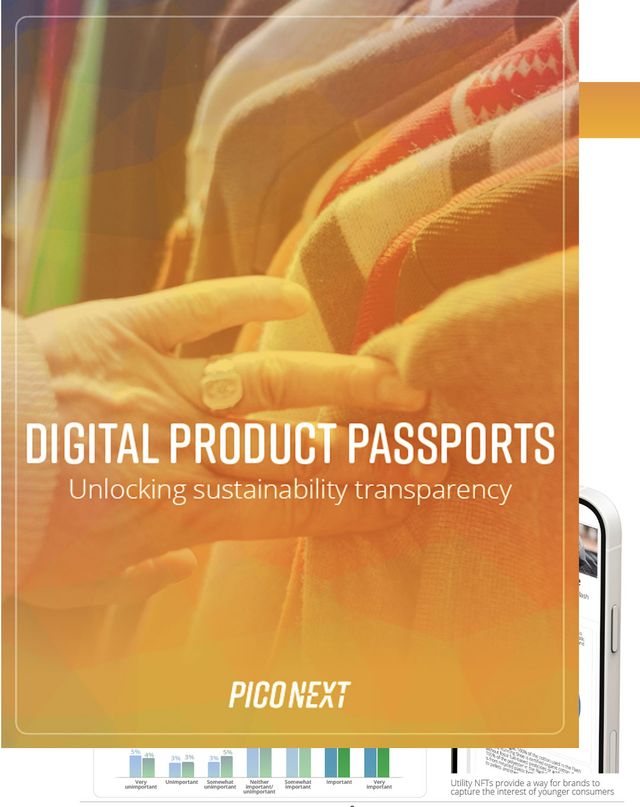Focused on using business as a vehicle to advance sustainable women’s fashion, Simple Chic sources and manufactures its own Essentials Capsule of high quality 100% Fine Merino Wool dresses, tops and wrap scarves to celebrate natural resources, recognise women’s diversity, and empower a new generation of local independent women designers and makers. But unlike other sustainability-focused apparel brands, Simple Chic goes beyond typical expectations to drive impact in the communities and stakeholders it serves.
Promoting a circular economy
Based in Sydney, Australia, Simple Chic was originally established in 2018 by founder Mira Mikosic as a research effort to understand how to achieve greater sustainability through supply chains and local skillsets. Launched formally as a business in 2020, the brand’s vision is to contribute towards a more equitable, and regenerative apparel industry — one in which clothing is used more often; and repaired and recycled in a circular, closed-loop system.
To this end, Simple Chic focuses on natural, renewable, and traceable materials; made-to-order business models; and offering on-demand, post-purchase, circular product services to its customers – including repair, re-sale, upcycling, and recycling. It accomplishes this vision through its community of women-led micro-businesses, as well as partnerships with like-minded brands, such as Upparel for recycling and AirRobe for re-sale.
Reducing textile waste with on-demand manufacturing
Through its e-commerce platform and business model, Simple Chic aims to eliminate textile waste, microplastics, and women’s inequalities by offering a slow and circular alternative to today’s fast fashion.
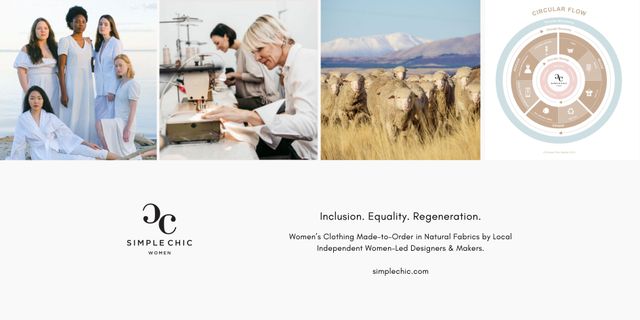
In addition, one of Simple Chic’s most innovative technology initiatives is its pilot of the My Design by Simple Chic digital design tool, which enables women to create their own semi-custom clothing designs. The garments are then produced made-to-order through local micro-business of women makers.

We’re focused on empowering women and elevating their voices through environmentally conscious fashion.
Our style-focused customer comes to us because of our sustainability initiatives, and it’s important that we communicate our efforts in a way that reflects our brand promise.
“We’re focused on using business as a vehicle to empower women — both makers and customers — by elevating their voices through environmentally conscious fashion,” says Mikosic. “Customers also need access to trusted sustainability information so that they can make informed decisions about garments — both pre- and post-purchase. For today’s consumer, it’s no longer enough for brands to simply say something is sustainable without disclosing its upstream and downstream material impacts.”
Digital Product Passport: Sustainability info in one place
So that it could communicate its sustainability disclosures and circular services, across the product lifecycle and value chain, Simple Chic turned to a Digital Product Passport (DPP), powered by PicoNext. Simple Chic’s Digital Product Passport focuses on the Fine Merino Wool products it sells under its own brand, and showcases the sustainability details and disclosures of each product – including:
- Renewable and biodegradable natural materials
- Ethical manufacturing
- Recycled packaging
- Carbon-neutral delivery
- Material impact alignment with the United Nations Sustainable Development Goals (SDGs).
Sending sustainability data to a public ledger
Simple Chic used the Minting capability of PicoNext to register its product information on a sustainable, carbon negative public ledger, which secures the information and makes it verifiable, traceable, and transparent. It then used the DPP Data Events capability of PicoNext to associate specific sustainability attributes with each of its product entries on the public ledger, without having to hire developers or write code to do so.
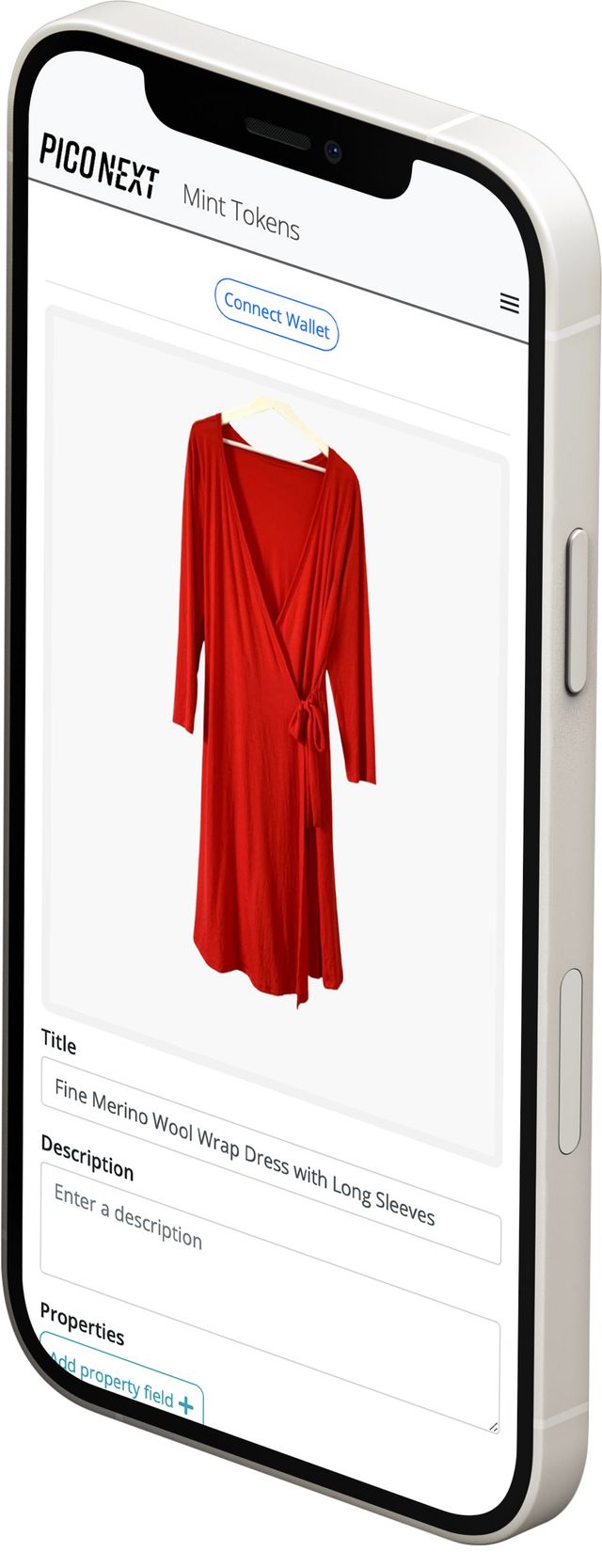
Blockchain data is available globally, and persistent
One advantage the brand values in using a blockchain-based DPP is that the data is distributed globally, as well as persistent. Regardless of the brand’s future status, or that of any of its value chain or technology partners, the data will be available on the public ledger as a record of its sustainability actions.
Custom-branded DPP using PicoNext Enterprise APIs
As Mikosic explored Digital Product Passport options, she wanted to focus on brand consistency and seamless integration of the brand experience across all customer touchpoints. With this in mind, Simple Chic chose to implement PicoNext Enterprise APIs into a custom branded website in order to render the DPP information and make it available for customers. This way, Simple Chic could retain full control over the brand experience of its DPP, ensuring that its user experience is exactly in line with its brand guidelines.
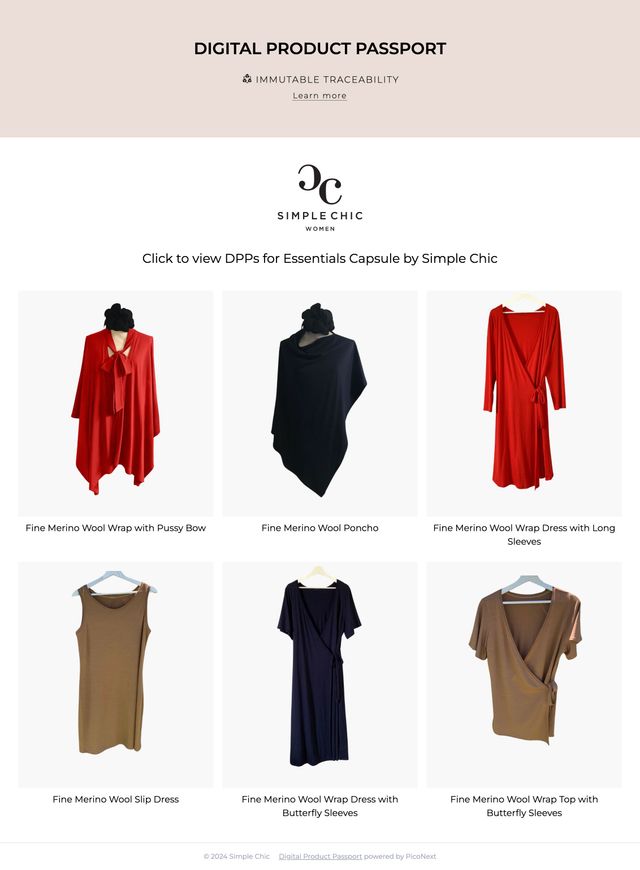
First, Simple Chic used the Token Collections capability in PicoNext to curate and group its products and their associated public ledger entries. Then, the Token Collections API helped display those specific products on Simple Chic’s custom-branded web pages that reflect its typography, colour palette, and design scheme. Finally, Simple Chic used the DPP Data Events APIs to retrieve sustainability attributes from the public ledger, and display it on those product-level pages in a way that fully reflects its brand storytelling, identity, and experience.

Our Digital Product Passport helps customers view all of our many sustainability efforts in one place, completely aligned with our stylised brand experience
And best of all, it’s very easy for them to access it, through a simple Web link or QR code.
“Our Digital Product Passport enables customers to view all our verifiable sustainability information and circular product services all in one place, and have it seamlessly integrate our brand style guide for an authentic and trusted experience,” notes Mikosic.
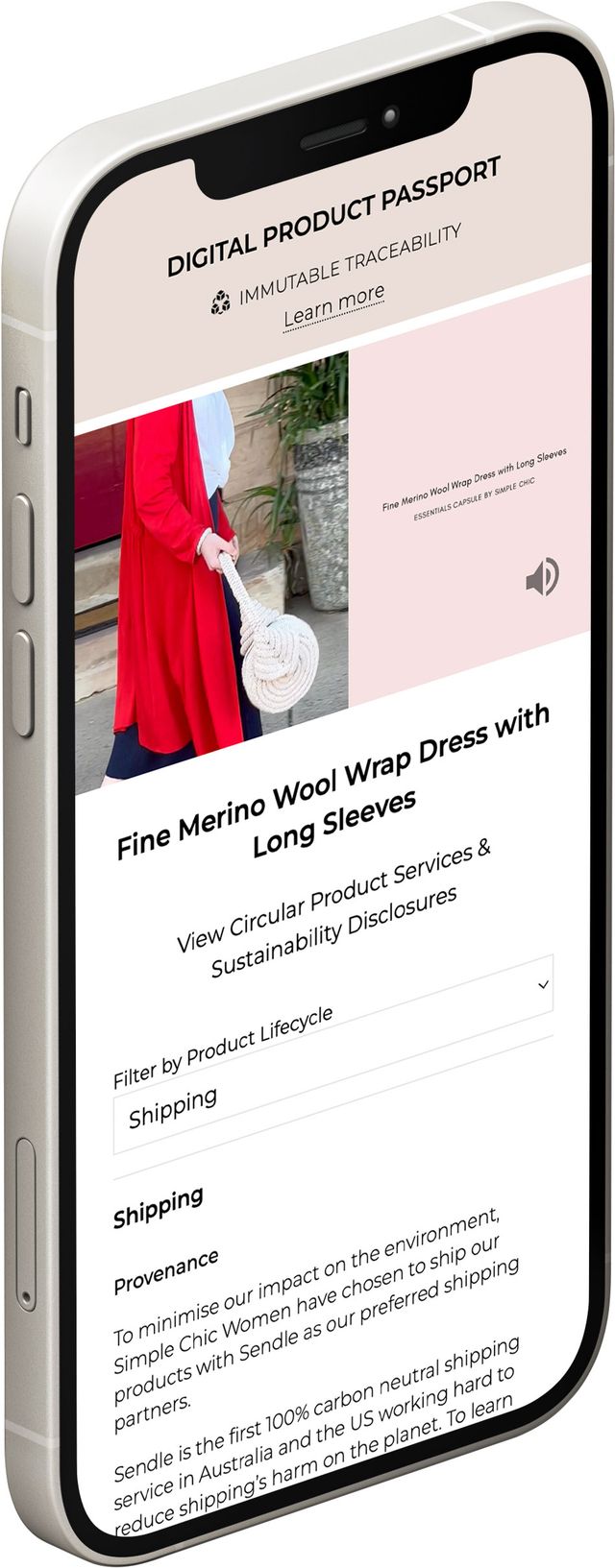
“Customers can also easily access the DPP through a QR Code on the garment or using a direct Web link” says Mikosic. “In addition, to improve the user experience, we added a simple drop-down menu — allowing customers to filter for important attributes of the product lifecycle, like details on raw materials, care instructions, repair services, and recycling information.”

Digital Product Passports encourage increased sustainability transparency around sustainability, which Simple Chic is committed to.
This information is powerful in driving environmental action – something that’s good for people, good for our planet, and good for future generations.
Evolving the DPP for the future
In the future, Mikosic is looking to expand and update the company’s Digital Product Passport, appending additional sustainability attributes to the public ledger as her material sourcing and manufacturing partners evolve. Mikosic is also looking to use her customer engagement and loyalty experience to test and explore the DPP as a new customer channel. The token-based DPP experience can be offered as a way to further engage community members throughout the product life-cycle, including delivering exclusive content and loyalty-based offers to the customer.
“Our Digital Product Passports have verifiable, traceable, and transparent disclosures about our material impacts at different stages in the product lifecycle,” says Mikosic. “This brand storytelling and sustainability education is powerful in advancing a circular economy. And ultimately, it helps create a better business and a better world — good for people, good for our planet, and good for future generations.”

